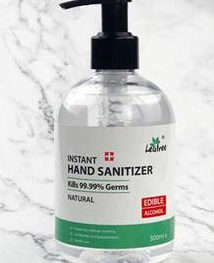We’ve written about the potential dangers of hand sanitizer before, as adverse exposure to it is fairly common and the bottles tend to be easily accessible, such as in purses and on counter tops. With more hand sanitizer products entering the market in 2020, there are some new concerns we’d like to make you aware of:
What Parents Need to Know About Hand Sanitizers in 2020
1. The FDA warns that certain hand sanitizers contain methanol
Methanol is a toxic alcohol and is not meant to be used on the skin or ingested. The highest risk for methanol poisoning is through ingestion. Toxicity through exposure to the skin is unlikely. Potential adverse effects are nausea, vomiting, headache, blurred vision, blindness, seizures, coma and death.
Please check your supply of hand sanitizer to ensure you do not have a product that has been recalled. If you have a bottle listed on the FDA’s most recent link of products containing methanol, stop using it and dispose of it immediately in an appropriate hazardous waste container. Do not flush or pour it down the drain.
At the Drug and Poison Information Center, we’ve received 64 exposure calls related to hand sanitizers contaminated with methanol. 81% of those exposures were dermal, 19% were ingestions. The majority of exposures were managed with home observation, however 10% of patients required evaluation in a healthcare facility. To date, we have not seen any significant symptoms from skin exposure alone.
2. Some packaging is misleading
We have noticed a concerning trend with hand sanitizers; they look like other products and that can be misleading, especially for children. Some products look like other household items such as water bottles, shot glasses and medicine bottles.
 3. Some labeling is concerning
3. Some labeling is concerning
While some new hand sanitizer products look like other products, some contain bottles contain certain labels that say ‘edible.’ No matter what type of alcohol the product contains, such as ethyl alcohol or isopropyl alcohol, it should never be ingested. Swallowing hand sanitizer could cause nausea, vomiting, drowsiness, decreased blood sugar and coma. So far this year the DPIC has managed 461 exposures to hand sanitizers.








